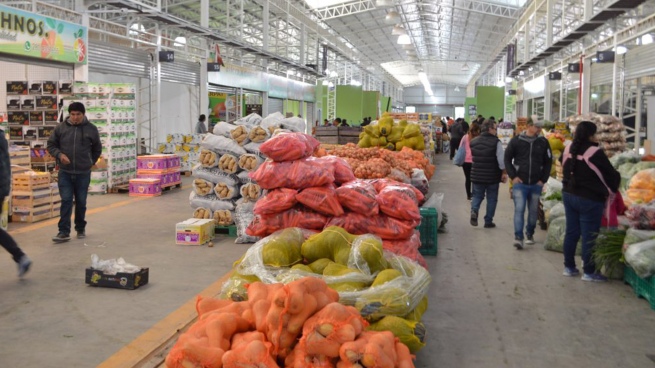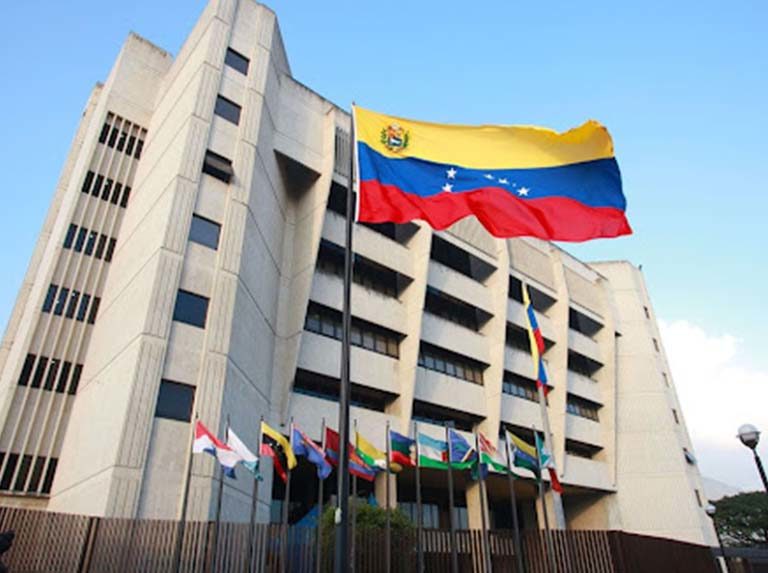With different programs that promote direct marketing fairs for healthy food products at fair prices, the provinces seek to strengthen the population’s access to local productions of meat, vegetables and fruit, as well as baked goods and artisanal options.
Buenos Aires province
For two years, the Mercados Bonaerenses program -which promotes the development of alternative marketing channels and guarantees access to a varied food supply- has promoted local production and created a network of more than 1,200 regional producers and 42 points assisted with mobile stores of meat, fish, dairy and pasta that complement local production.
According to the government, the program “allows savings of about 25% on food” compared to traditional channels; It also implemented the “Mercados Bonaerenses” mobile application to locate fairs and offers a discount plan for consumers with Banco Provincia’s DNI Merchants Account platform.
The agenda of Mercados Bonaerenses is in www.mda.gba.gob.ar/sistemas/mi/mercados/bonaerenses/public/dias.
On the other hand, in La Plata it works from Monday to Sunday. the Tierra Verde program; in Tapalqué, from Monday to Saturday from 9 a.m. to 12:30 p.m. Seventh Male Cooperative offers all kinds of dairy products, while there is a system of Neighborhood pantries in Brandsen, Berisso, Moreno, José C. Paz, General Rodríguez, Quilmes and Berazategui. Avellaneda has its own Agroecological Market which works every day from 10 to 14 meters from the Southeast Access.
In Bahía Blanca, horticultural producers from Sauce Chico and Colonia La Merced They sell different merchandise once a week through two bags, one for 1,200 pesos and the other for 600, which can be purchased after completing a form published on Facebook, while on weekends they are presented at a fair in one of the sheds of the Local Port Management Consortium, from 12 to 18.
Also in that city is the Municipal Market, with 32 shops and a space for entrepreneurs that, among other items, has a bakery, greengrocers, fishmongers, poultry, cold meats and cheeses, natural and frozen products, chocolates, cakes, candles, handicrafts and plants.
Santa Fe
The municipality of Rosario has a series of Social Economy Fairs that brings together local entrepreneurs who participate in the Rosario Emprende program, a space for training and support for the development of new productive projects that range from food, agroecological vegetables, handicrafts, clothing, fabrics, toys, jewelry and furniture of good quality at fair prices .
The hours and location of the sales stalls can be consulted on the web greenfairs.comwhile in parallel the city develops monthly and itinerant fairs organized by the Santa Fe Más provincial inclusion program, for young people who want to train in a trade.
In the stalls, almost always outdoors in public spaces, you can find food, drinks, clothing and 3D design objects, “at affordable prices and lower than in the usual commercial circuits,” he told Télam the provincial director of Socio-productive Inclusion, Mariana Recalde.
“The fairs pursue the objective of providing students who are trained in the Program’s production units and workshops with a space to market their productions,” he explained.
The city also has the entrepreneurship Rosario Popular Market of the Union of Workers of the Popular Economy (UTEP), which works from Monday to Saturday at the La Toma Cultural Center (Tucumán 1349) and focuses above all on the food sector.
saint Louis

The Ministry of Production organized a fair for small and medium-sized producers in public and itinerant spaces both in the capital and in towns in the interior of the province, while production cooperatives offer direct food to consumers and nearby businesses.
Outside the state sphere, the Tilisarao Agroindustrial Work Cooperative produces vegetables intended for local businesses and consumers in the north of the province and its president, Fabio Lucero, told Télam that they have the advice of INTA with whom they share training sessions and logistics orientation and “local demand means that we always think of advancing in our offers”.
He stressed that they have a production system “absolutely ecological and with significantly lower prices than those offered by the market” and assured that its “products are known for their quality and price”.
Cordova
In this province there are several alternatives linked to the social economy, family farming and other forms of direct marketing that have official support, as in the case of www.voydeferia.comwhich brings together more than 30 agroecological fairs in the province, where associativism, health and soil care, solidarity, cooperation and marketing at a fair price for producers and consumers are encouraged.
Voy de Feria has the support of the National Institute of Agricultural Technology (INTA) and the provincial Ministry of Agriculture and Livestock, among other institutions.
The administration of Córdoba also has 54 Walks of the Social Economy, where nearly 3,500 vendors exhibit and sell fresh food from Tuesday to Sunday in around 40 neighborhoods, while in the city of Río Cuarto there is Ferichange, a proposal to accompany producers with new sales spaces and fair trade proposals for small entrepreneurs agroecological.
Chubut and Neuquen

The Concentrator Market located in the industrial park of Trelew, is the main source of direct commercialization of fruits and vegetables at popular prices in the district and, according to the head of the Provincial Executing Unit, Pablo Muñoz, it is “the refuge to sustain popular prices.”
“Here fruits and vegetables are marketed from Monday to Saturday for businesses, but also for individuals, with closed package sales that families can take advantage of with differences that in some cases reach 100% of what is bought in a neighborhood greengrocer or in a supermarket,” the official told Télam.
In turn, Neuquén has community fairs and markets that promote the consumption of healthy foods and direct exchange between producers and consumers.
The capital’s municipality organizes four large fairs that run on Saturdays from 9 a.m. to 3 p.m.where visitors can buy fruits, vegetables, processed foods, electronic items, clothing and accessories, among others.
In the China Muerta area, 30 kilometers from the provincial capitalopens every Saturday a self-managed fair by producers and artisans with vegetables from gardens and homemade chickens, natural creams, clothing and plants at affordable prices.
in Mesopotamia
currents It has, through various provincial, national and municipal agencies, a network of fairs for small producers that are presented weekly in various locations. In the case of the capital, the program is called Popular Markets and runs from Tuesday to Saturday squares and parks in the city center.
The largest annual concentration of family farmers in Corrientes and the Northeast met this weekend in Miter Park, with the assistance of more than 500 vendors and entrepreneurs from the region.
Between rivers launched until August 26 the call for entrepreneurs to join the Manos Entrerrianas program at the link https://bit.ly/3nVphN8a large provincial fair that in its four previous editions gave space to more than 400 producers of food, toys, traditional crafts, cutlery, clothing, ceramics, construction materials and accessories, among other items.
The objective is “putting value on the social economy, fair trade and responsible consumption”, facilitating the promotion and marketing of products and services, explained the deputy governor, Laura Stratta, promoter of the program.
Jujuy
In this province, fairs and supply markets operate in most of the municipalities that offer fruits and vegetables and become alternative marketing points to traditional channels with popular prices.
The municipality of Palpala promotes the proposal “The Market in your Neighborhood”, through a mobile center that travels through rural areas and settlements to bring products of habitual consumption such as meats, eggs, honey, fruits, vegetables and preserves.
“This initiative seeks to promote consumption and at the same time be able to alleviate the economic situation of many families by offering products at affordable prices,” the commune’s secretary of Human Development and Social Welfare, Jorge González, told Télam.
Chaco
The Chaco Ministry of Social Development implemented in recent months a Popular Markets plan that allowed the population to buy dry products, meat, fruit and fish at lower prices than in traditional stores on different weekends.
The minister of the area, María Pía Chiacchio Cavana, pointed out that “when one goes to large shopping centers, that money is transferred outside the province, on the other hand, when we buy Chaco products made by our locals, the funds remain in Chaco, which means that this unit production can expand, workers have better incomes and thereby generate a multiplier effect”.
La Pampa and Mendoza
In La Pampa every Saturday the Municipal marketfrom 9 a.m. to 2 p.m. at the Yapay property, in front of the airport in the city of Santa Rosa, where local producers offer different food options, while there is a permanent stand in the Central Market with fruits and vegetables at popular prices.
And in San Rafael, Mendoza, the frank fair where you can access vegetables, fruits, baked goods or nuts from local producers, every morning from Monday to Saturday in different neighborhoods.









